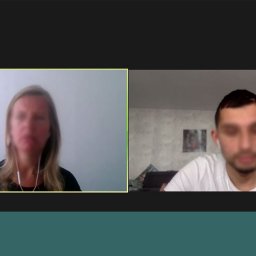
Website localisation: you say tomato and I say tomato – but I meant apple!
Language and culture can be funny things. We all know the Gershwin song highlighting the differences in pronunciation between the English and Americans – and they share the same tongue (despite Churchill’s opinion that we are one people separated by a common language!).
English has become such a universal language that it is tempting to think that website localisation just means framing all your web material in English and pretty well everyone will understand it. The truth is that even other English-speaking nation’s might find some words or constructions difficult to follow – and could even be offended by certain words or imagery. Indians and Africans – many of whom have English as a primary language – will have very differing views on what is acceptable and the meaning and import of words, phrases and concepts.
The important factor to take on board for website localisation is that when you are designing a website for a particular country or culture you need to understand that culture and write and design to its needs and expectations. When I say ‘you’ here I don’t literally mean you. Most site owners, managers and designers will not know much about other nations’ traditions and conventions – nor should they be expected to. The depth of knowledge and immersion has to be extremely deep in order to produce a site that is anywhere near as effective as the home version.
Website localisation is never simply a question of literally translating your site and leaving it there. To begin with there are often words and phrases that don’t literally translate into other languages – or translate to a different meaning, sometimes even taboo or offensive in nature. I recall a British chocolate bar of the 1970s called Trophy changing its name because it sounded too much like a French swear word! And it is not only language that you need to concern yourself with; people of different races and cultures are motivated and engaged by different things. Whereas status, financial success or sexual attraction might be strong motivators in a westernised environment, elements such as friendship, family and personal honour and integrity will be stronger in many Asian countries. And anything pertaining directly to sexuality (especially female sexuality) will be considered taboo and severely frowned upon in Muslim countries, for example.
There are also purely mechanical issues to consider when translating and adapting for website localisation. For example many languages translate into much longer text than English and this has to be accommodated within the design you use. Your current design might find it difficult to cope with boxes and buttons of particular shapes and sizes if the copy doesn’t fit. And if you have to translate into different alphabets such as Chinese, Japanese or Arabic this adds just another complicating dimension.
Search engine optimisation (SEO) is another potentially damaging area if you get it wrong. You cannot just translate the most popular English terms and expect that this will serve for all markets. It won’t. Different cultures will use different words and terms to look for your product or service and you need to understand and appreciate the nuances of this to ensure your SEO is effective.
Finally there are regulatory differences between countries and something that you do (or don’t do) in one area might not be legally acceptable in another. This can include cultural and literal references but also financial and shipping activities, for example. You will need to make sure your localised website doesn’t break any laws or cause users to unwittingly transgress their local statutes and codes.
This is an area that can be fraught with pitfalls and dealing with unfamiliar areas means you don’t know what you don’t know – so it is usually best to find someone who does. We deal with many overseas locations and are familiar with the markets and their requirements. If you are considering a move overseas and international user research and would like to discuss the implications for your website, then please, get in touch on +44(0)800 024624 or email us at hello@ux247.com.

















